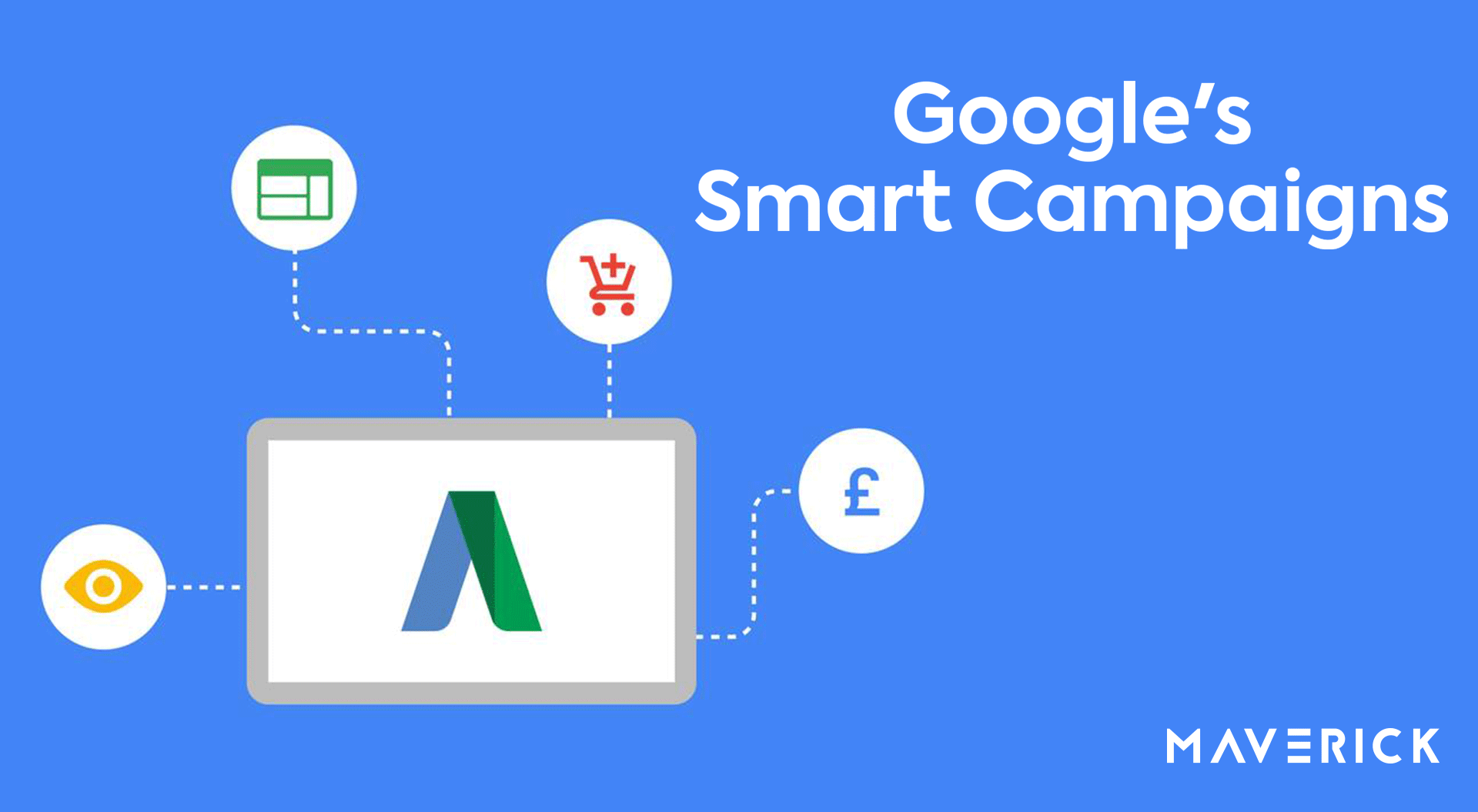

Automation and the creation of what is known as smart campaigns in Pay per Click advertising or PPC are not new. In fact, smart campaigns were launched by Google in June 2018. However, 2019 has been the year that many businesses around the world began adopting and incorporating automation into their PPC marketing campaigns.
That said, let's first define what a Smart campaign is.
What is a Smart Campaign?
A Smart Campaign is an advertising option launched by Google to help small businesses advertise on its platform. Companies don't have to have a website to create an ad, but can use calling options and lead generation to achieve their advertising goals.
Google says it built the Smart campaigns option "by tailoring the innovation and advertising technology available with Google Ads for small business owners. You can now create ads in minutes and drive real results—like making your phone ring, sending leads to your website, or bringing customers to your store."
It also claims that its Smart Campaigns option is "three times better at getting [a company's] ad in front of the right audience."
In its Smart Campaigns launch announcement, Google also said it would ask advertisers how the marketing option was working for them so it could "fine-tune" their ads "to get the results [advertisers and business owners] care about most.
So what are the types of Smart campaigns available?
· Smart Display
· Smart Shopping
· Dynamic Search Ads (DSA)
·
Automated Bidding Strategies
Now let's go into detail for each one of Google's Smart campaign options:
Smart Display
This type of campaign allows advertisers to use three optimization techniques, namely:
· Automated bidding
As opposed to the older version of targeting that was used with a normal display campaign, Smart display uses data from existing or available paid campaigns to reach new customers. All you need to do is include headlines, logos, descriptions, and images, which Google will then use to create responsive ads, which can then fit in most if not all ad spaces across Google's Display Network (GDN).
Smart Shopping
Google's Smart shopping campaigns use feed from a company's or brand's products and assets along with machine learning to display ads across various networks. Google will use data and testing for several ad combinations to decipher the most relevant to your business and which have the best performance.
Smart shopping ads can be used via the Google Search Network, Display Network, YouTube, and Gmail.
Dynamic Search Ads
Dynamic Search Ads (DSA) allow Google to use your website's content to target and find new customers. Google uses your website's data including headlines and landing pages and matches them with users' search queries so that the customers who click on your website are highly relevant.
Using this data, Google generates clear and attractive headlines for your ads. DSA allows you to use your entire site for target or a select number of landing pages.
Automated Bidding Strategies
Automated bid strategies, or what Google sometimes refers to as Smart bidding, utilize advanced machine learning algorithms that modify bids to each ad or auction. However, this type of bidding uses several factors like time of day, location, the type of device used, even remarketing lists, so that bids are created for each search query.
The Pros and Cons of Smart Campaigns
Each of these Smart campaign types comes with a set of benefits and downsides.
Among the benefits of Smart campaigns are the higher reach and better keyword research, strong efficiency and having more goal-oriented campaigns. And since manual bidding is no longer the method used, less time needed to create bids. In addition, Smart campaigns are more useful for smaller businesses.
Like with any advertising campaign, there are a few cons that advertisers need to consider before using Smart campaigns. The first downside is due to automation which takes out the control advertisers tend to have when advertising with standard PPC campaigns.
Google becomes the person-in-charge when it comes to automation in terms of bidding, ad creative, targeting, and even negative keywords. Blocking certain devices, that may be underperforming in a Smart campaign, becomes impossible with Google's automation. Bid maximization can become costly with Google's Smart campaigns.
Moreover, budgeting can pose a problem with automation as Google's Smart campaigns rely on machine learning so budget allocation and aligning it with goals may be difficult for businesses whose goals change on a seasonal basis. Google will also include some remarketing in its Smart campaigns. Unfortunately, Google doesn't show or mention how much remarketing it has included in the automated campaign.
To conclude, while automation comes with many benefits, especially with Google's Smart campaigns options that helps small businesses, there are several downsides advertisers need to be aware of before diving into Google's new advertising options.
Want to learn more about Smart campaigns and if they are good fit for your business, get in touch with Maverick's PPC team.